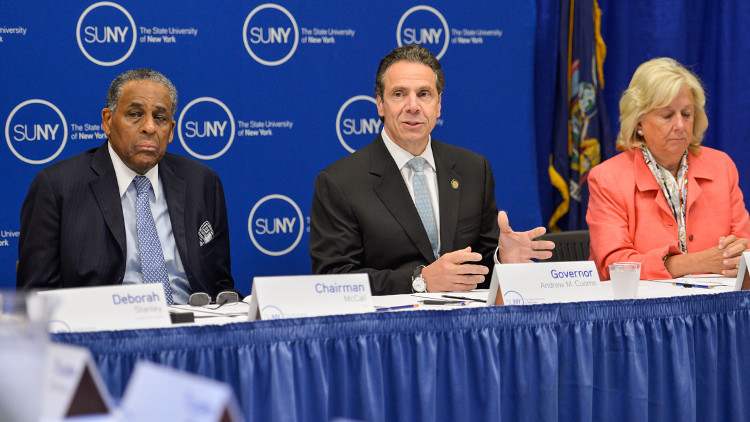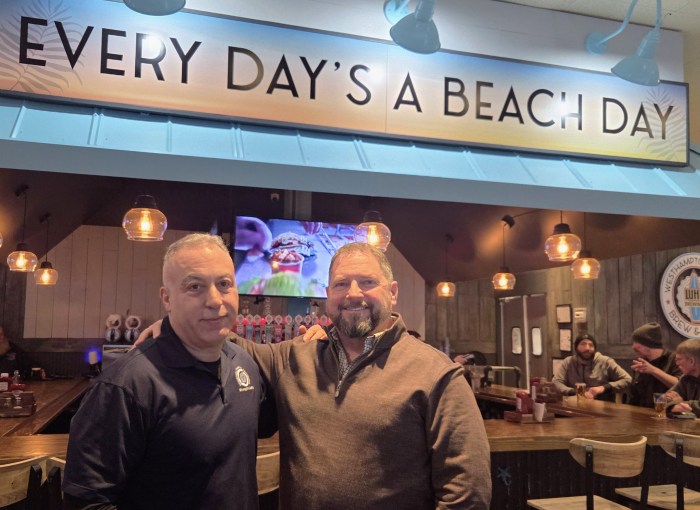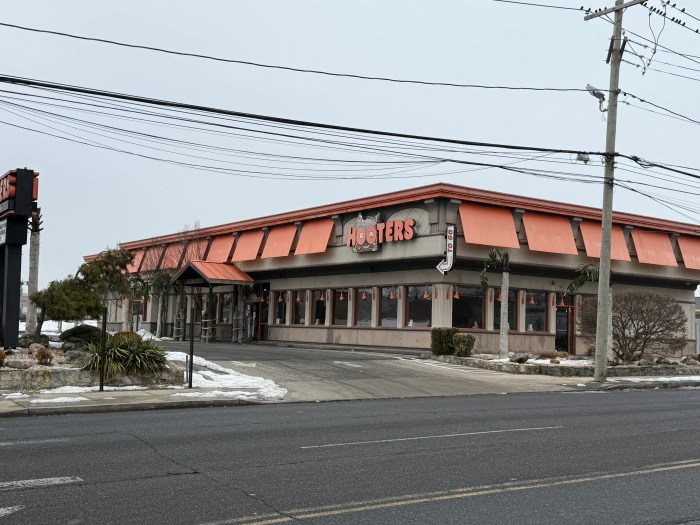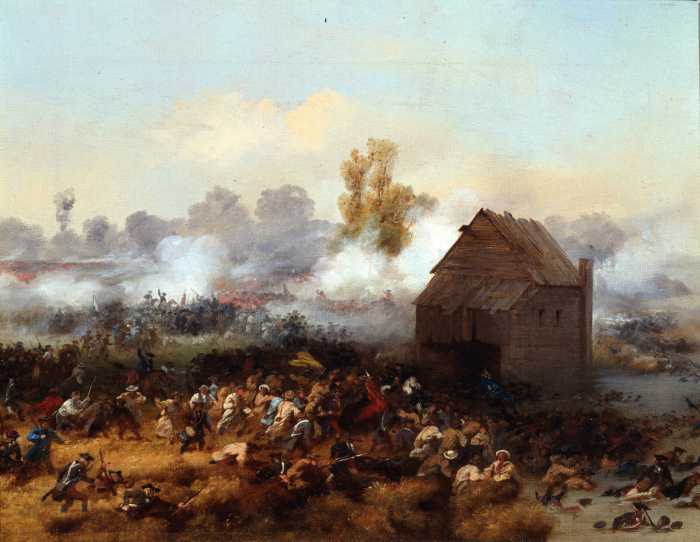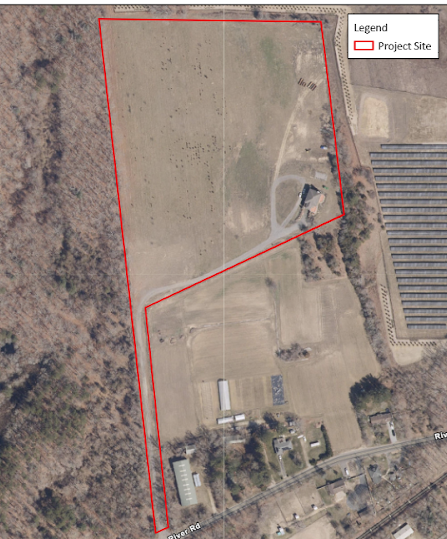A new sexual assault policy adopted by the SUNY Board of Trustees on Thursday mirrors a recently passed California state law stipulating “affirmative” consent between partners. Basically, the new definition of consent on SUNY campuses is “yes means yes.”
The resolution, which Gov. Andrew Cuomo presented to the board, was swiftly voted on and approved the same day.
“There has been an epidemic of sexual violence in this country that is truly disturbing and it is plaguing our college campuses,” Cuomo said in a press releasing announcing the move. “It is time for New York to take what is a difficult, uncomfortable topic and lead the way, and that is exactly what this resolution passed by the SUNY Board of Trustees today will do.
“This is not just a SUNY problem,” he continued, “but SUNY can lead and SUNY can reform on-campus safety so we can better protect our students, and make our university communities a safer place for our children.”
The resolution defines “affirmative consent” as an active agreement—either through words or “action.” It clearly stipulates that silence is not consent. Also, the newly adopted policy deems a person incapable of consenting “when that person is mentally defective, mentally incapacitated, physically helpless (whether induced by drugs, alcohol or otherwise), or asleep.”
It also includes an immunity policy for students reporting incidents of sexual assault who appear to be violating the student code of conduct, such as being under the influence of drugs or alcohol, and creates a “Sexual Assault Victims’ Bill of Rights” to better educate students about their rights to report such assaults to authorities.
The new policy comes just days after Gov. Jerry Brown of California signed a bill redefining consent on college campuses, which for decades has been spelled out by the common phrase: “No means no.”
Cuomo, in his statement, did not describe the new practices as simple as “yes means yes,” but the wording in the resolution is similar to the text of the California bill.
The memorandum presented to the SUNY Board of Trustees reads:
“Consent is clear, knowing and voluntary. Consent is active, not passive. Silence, in and of itself, cannot be interpreted as consent. Consent can be given by words or actions, as long as those words or actions create mutually understandable clear permission regarding willingness to engage in (and the conditions of) sexual activity.
Consent to any one form of sexual activity cannot automatically imply consent to any other forms of sexual activity. Previous relationships or prior consent cannot imply consent to future sexual acts.”
Here’s how the California law defines consent:
“ ‘Affirmative consent’ means affirmative, conscious, and voluntary agreement to engage in sexual activity. It is the responsibility of each person involved in the sexual activity to ensure that he or she has the affirmative consent of the other or others to engage in the sexual activity. Lack of protest or resistance does not mean consent, nor does silence mean consent. Affirmative consent must be ongoing throughout a sexual activity and can be revoked at any time. The existence of a dating relationship between the persons involved, or the fact of past sexual relations between them, should never by itself be assumed to be an indicator of consent.”
In his remarks to the board, Cuomo cited troubling statistics that indicate sexual assault is a pervasive issue on college campuses, but severely under-reported One in four college women will become a victim of sexual assault, he said, and less than five percent of rapes are reported to law enforcement—meaning the rapist is usually free to terrorize other women.
He also admonished college administrators for essentially doing little to lift the veil on campus rapes.
“Fewer than five percent of the cases were reported,” Cuomo said. “Why? Because the incentive for the school is to treat it as an internal matter. Why? Because the school doesn’t want the exposure; the school doesn’t want the publicity; it’s not a positive in any situation. And I believe that the incentives actually can be a disservice to the victim, because the incentive for the institution is at odds with what might be in the best interest for the victim.”
During an interview with reporters afterward, Cuomo suggested that the SUNY policy could be the basis of a future law that would include all colleges in the state.
“What I would hope is, from this example, and from this experience, we develop a state law and we pass that law and that would cover then all the schools in the state, not just the 64,” he said. “Any school in the state.”
While the governor mentioned sexual assault as not being just a SUNY issue but a “societal problem,” he did not single out Columbia University, which has come under scrutiny for its handling of sexual assaults.
Emma Sulkowicz, a Columbia student who says she was raped her sophomore year, has been outspoken ever since the private college did not hold the alleged perpetrator accountable. Now a senior, she has been carrying a mattress around campus every day in protest as a part of a performance art piece. She says she will continue to do so until the man who assaulted her is no longer at the school.
There are five public colleges under the SUNY umbrella on Long Island: Farmingdale State College, SUNY Stony Brook, SUNY Old Westbury, Nassau Community College and Suffolk County Community College.
Only three of those colleges—Stony Brook University, SUNY Old Westbury, and Nassau Community College—provide crime stats on their respective websites up to 2013. According to the data, Stony Brook students reported six on-campus rapes and five residential facility rapes last year. Those reports were up from five on-campus rapes and three residential facility rapes in ’12. Old Westbury’s site reports three forcible sex offenses each in ’12 and ’13—one each on campus, in residence halls and public property.
Farmingdale State had one documented incident of a forcible sex offense on campus in ’12—none in ’11 or ’10.
Suffolk County Community College reported one forcible sex offense from ’10-’12. That incident occurred in ’11 at its Michael J. Grant campus in Selden. Nassau County Community College reported three such incidents in ’13 and one in ’11.




